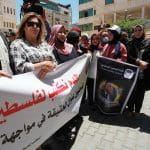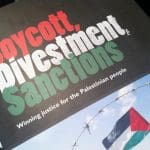
The accelerating adoption of academic boycotts of Israel is just one manifestation of growing support for Palestinians and intensifying efforts to hold Israel accountable for colonization, occupation, and apartheid. However, academic boycotts remain one of the most controversial pillars of the wider boycott, divestment, and sanctions movement. According to a recent study, while 91% of Middle East scholars support at least some boycott of Israel, more than a third are hesitant to get behind a boycott of Israel’s academic institutions.
In this policy lab, Sami Hermez and Dina Omar join host Tariq Kenney-Shawa to discuss the ethics of academic boycotts and explore the critical role they play in wider efforts to hold Israel accountable.
Tariq Kenney-Shawa is Al-Shabaka’s US Policy Fellow and co-host of Al-Shabaka’s Policy Lab series. He holds a Masters degree in International Affairs from Columbia University. Tariq’s research and writing have covered a range of topics, from the role of open-source intelligence in exposing Israel’s war crimes to analysis of Palestinian liberation tactics. His writing has appeared in The Los Angeles Times, Foreign Policy, and The Nation, among others. Follow Tariq on Twitter @tksshawa and visit his website at https://www.tkshawa.com/ for more of his writing and photography.
Dina Omar is a writer and a graduate student studying Anthropology at Yale. She is a founding member of Students for Justice in Palestine-National and serves on the National Executive Board of the Palestine Youth Movement.













